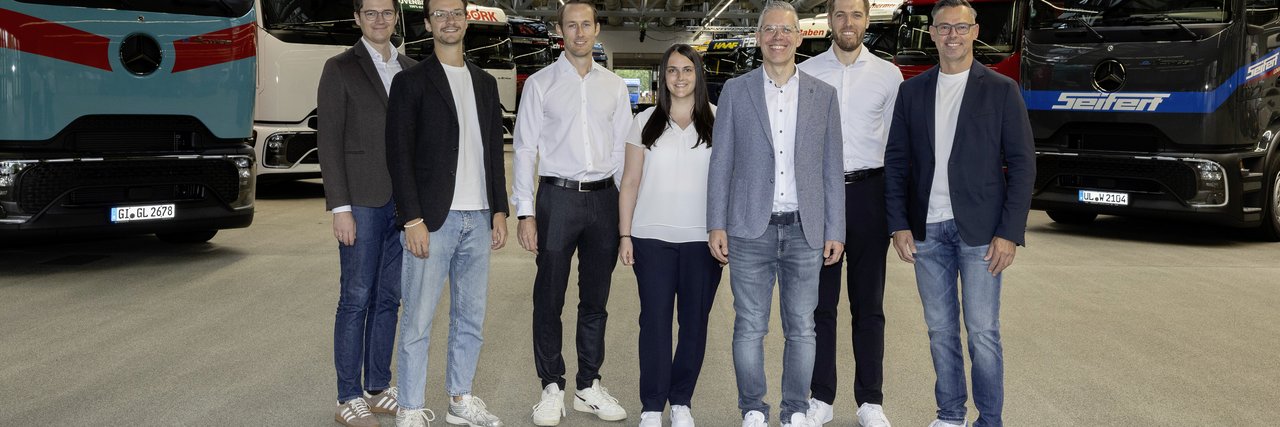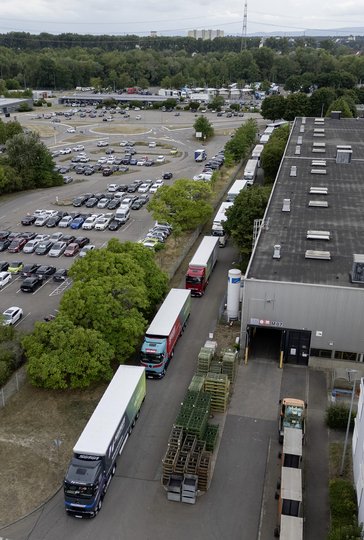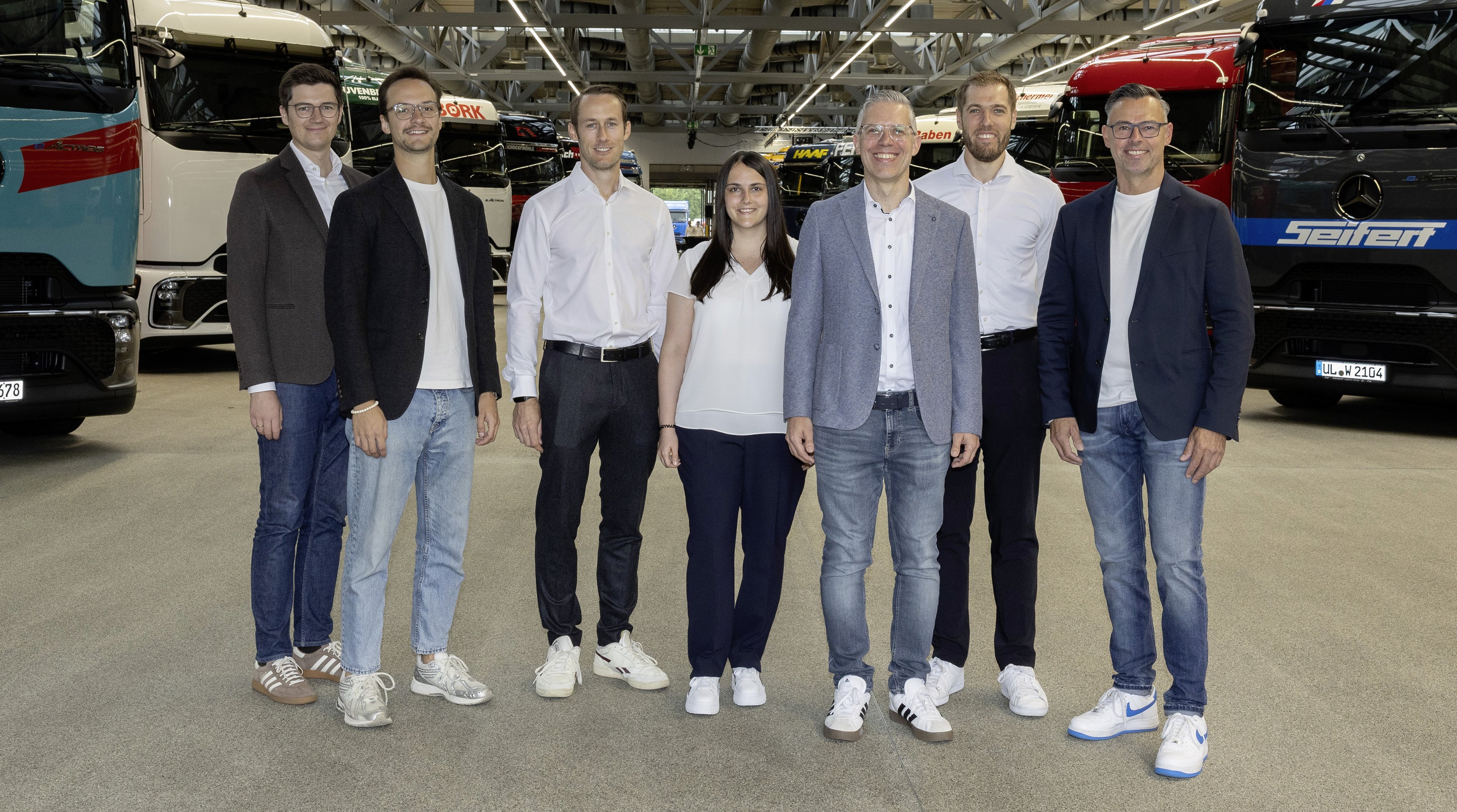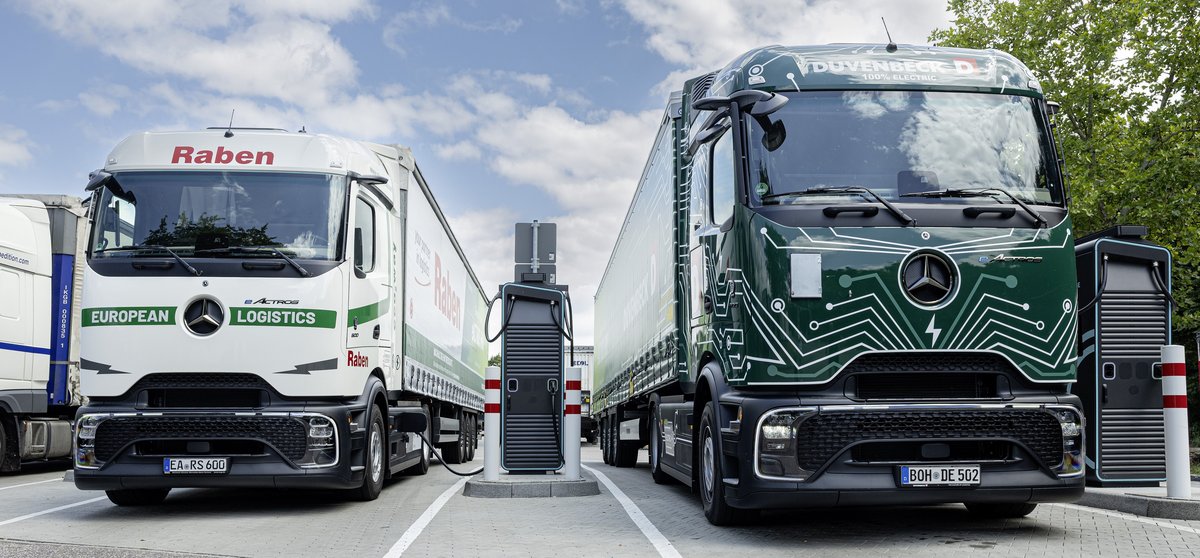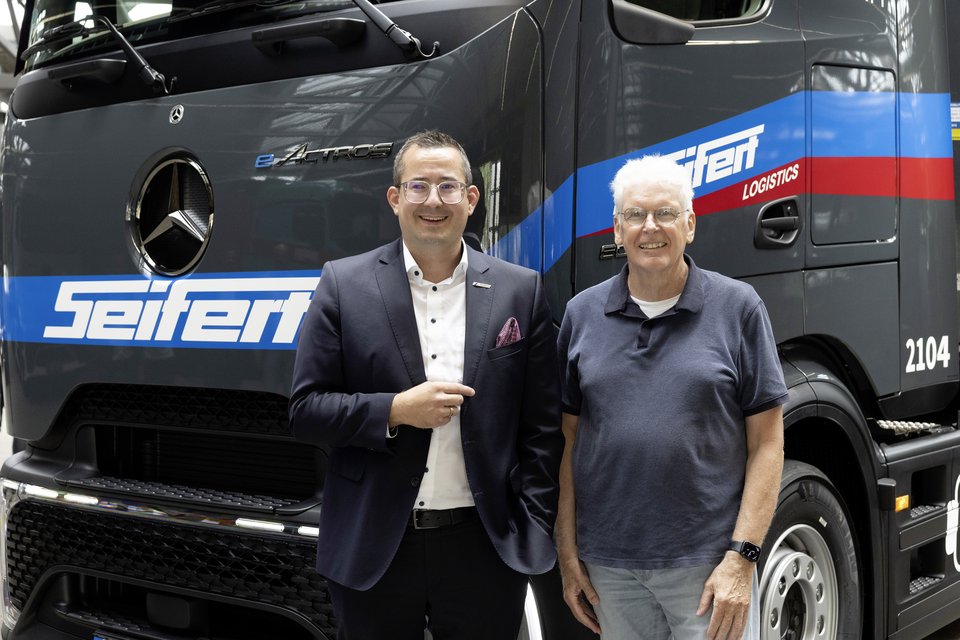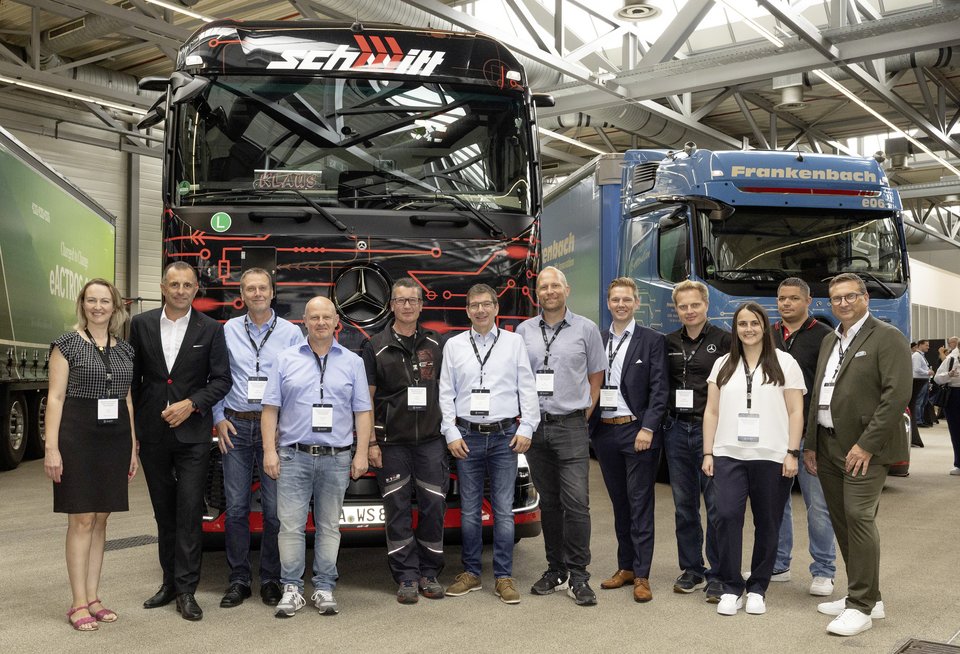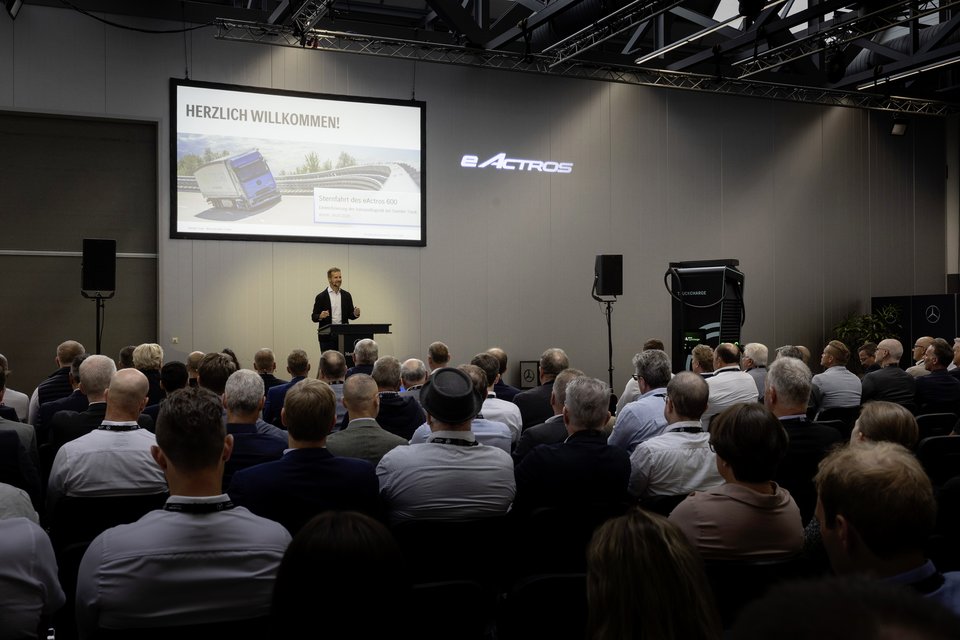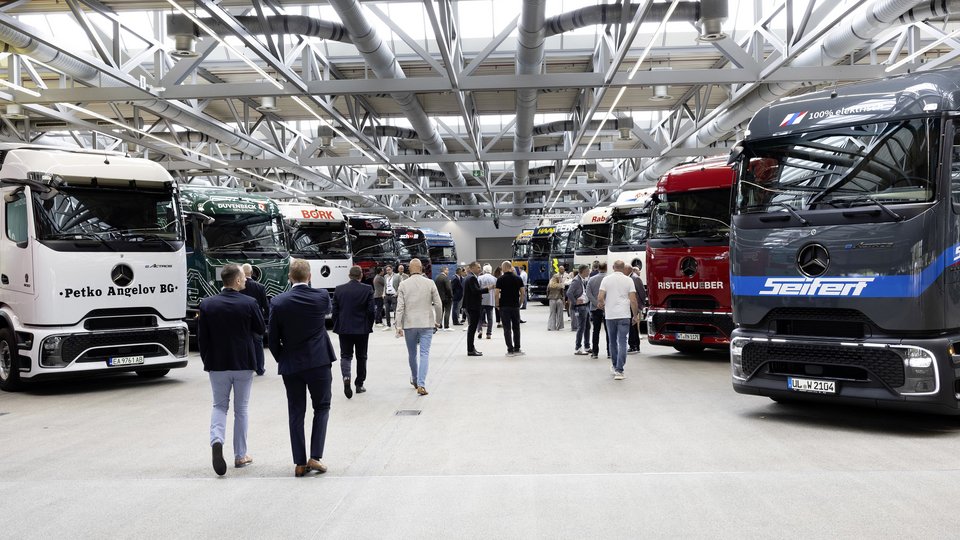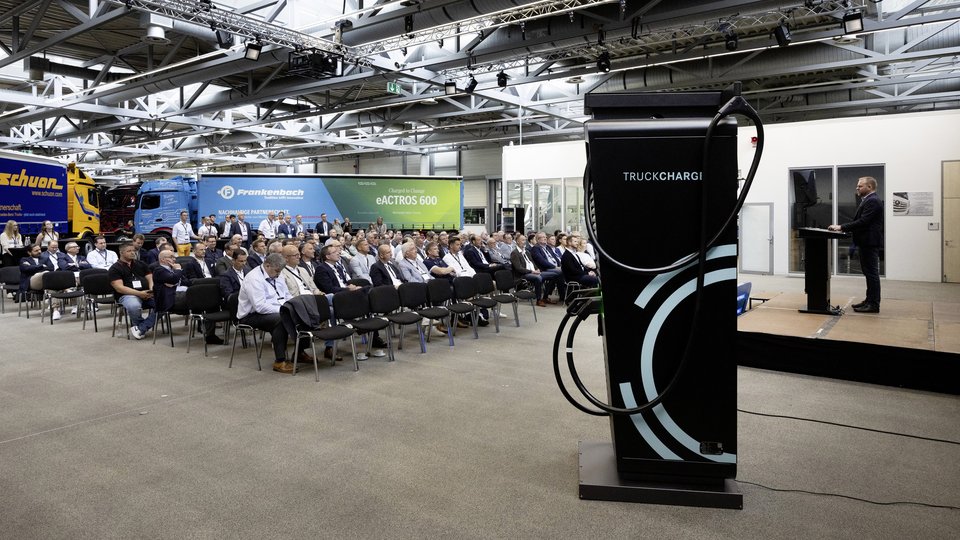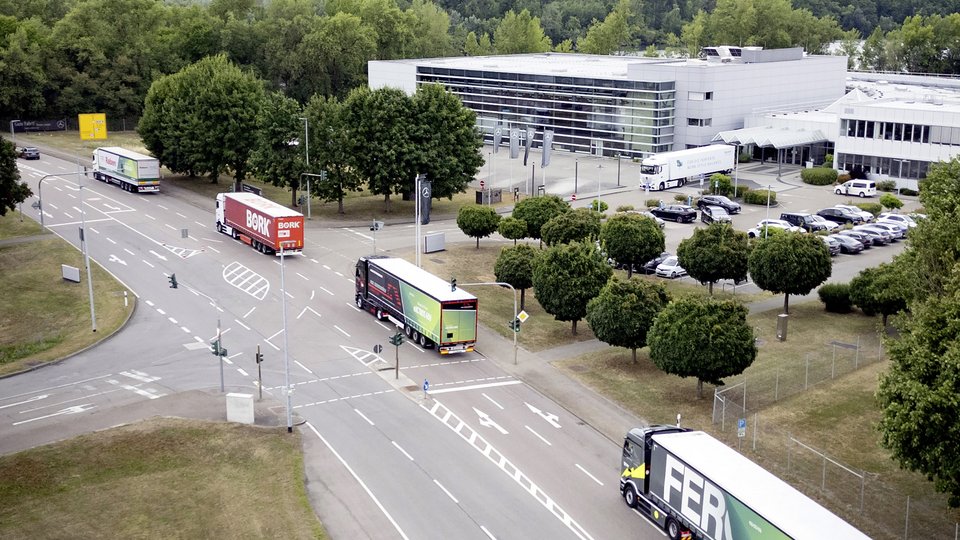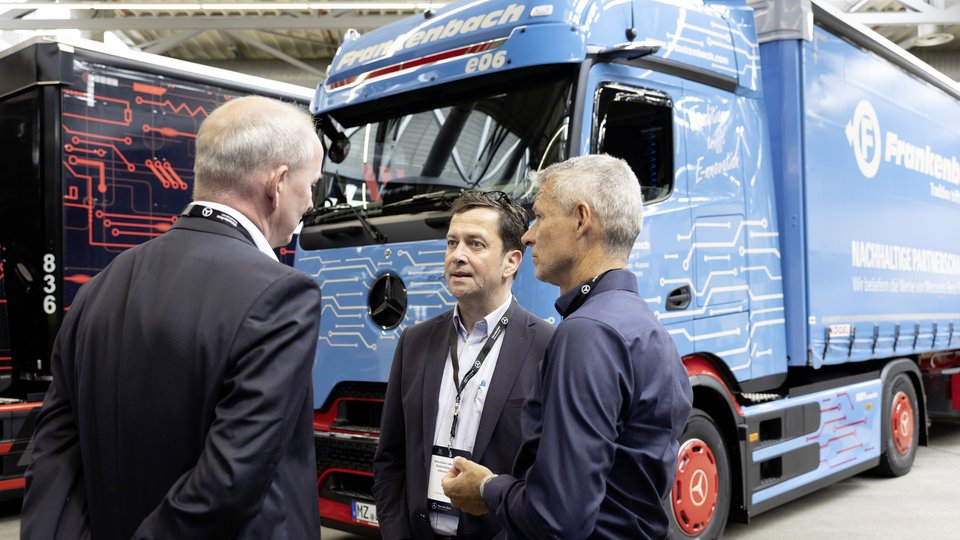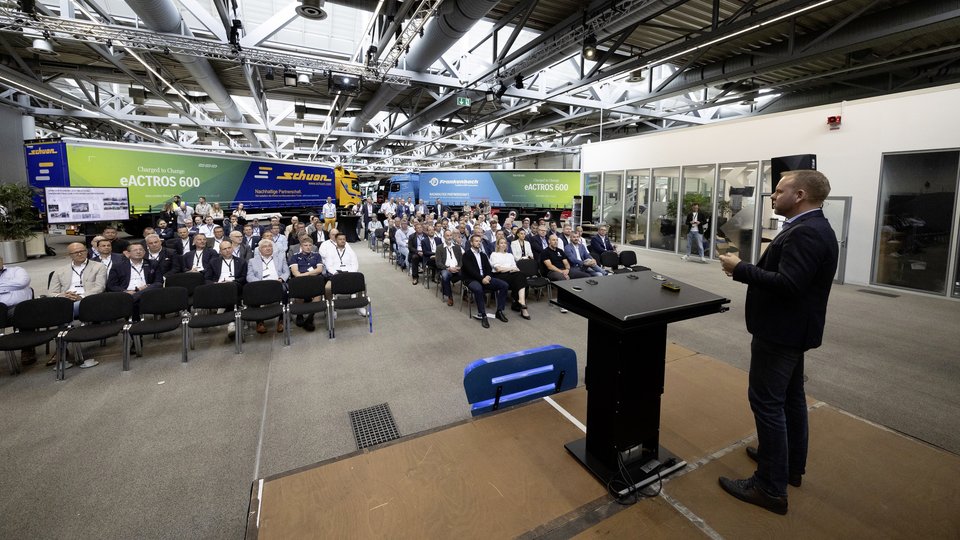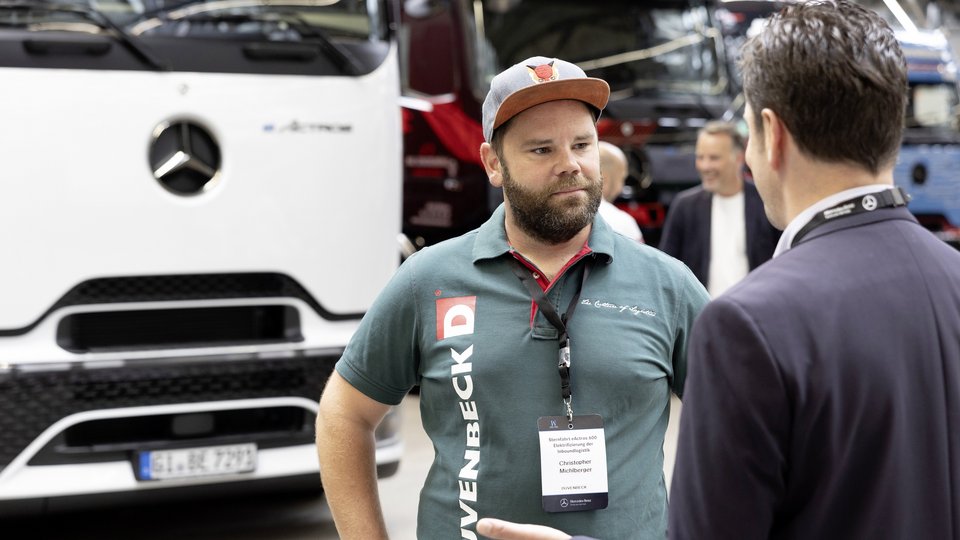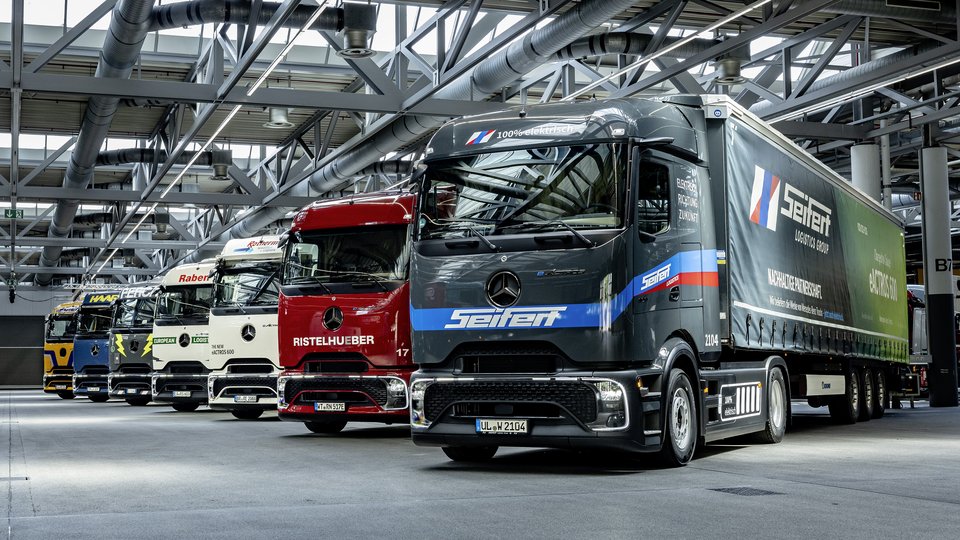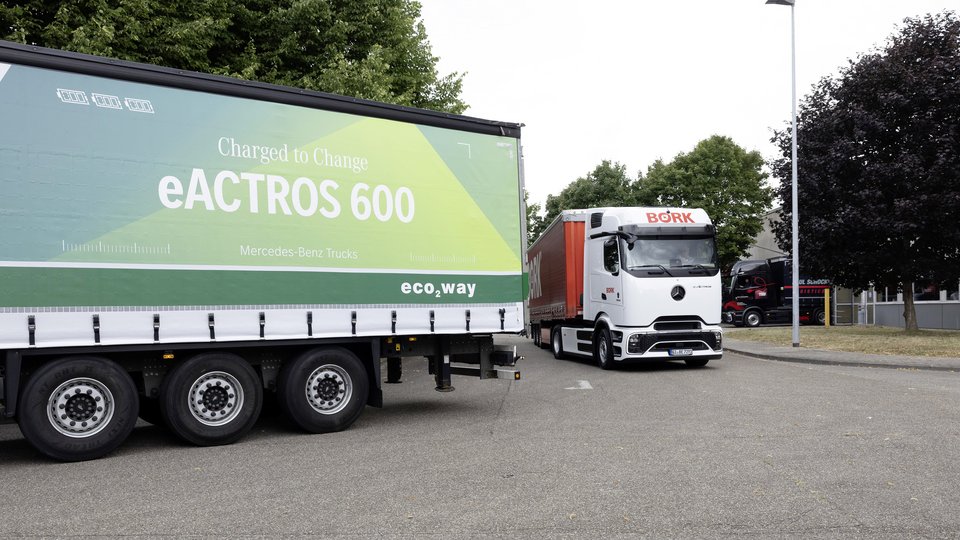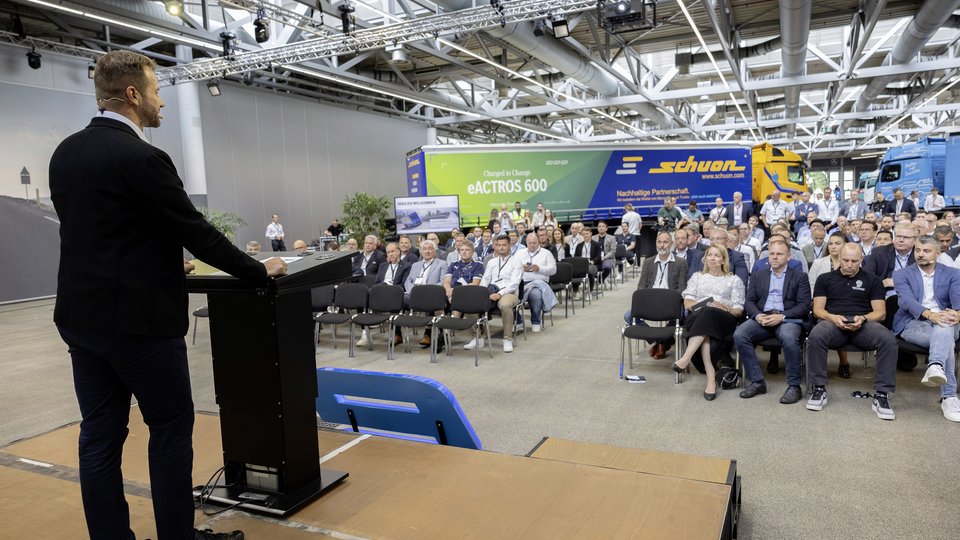Charging infrastructure as a key to success
Charging infrastructure plays a pivotal role in the implementation and success of the project. Marc Köster, Network Strategy and Sustainability, Mercedes-Benz Trucks, explains: “One of the main challenges was to mirror long-established logistics processes with diesel trucks using e-trucks, and to do so without major disadvantages. Setting up our own charging infrastructure directly in the unloading zones of our sites has been a game changer.”
This enables e-trucks to charge during unloading or waiting times, without time loss, a crucial factor for economic viability. At Wörth, 15 charging points have already been installed on-site, including six 400 kW fast chargers from TruckCharge. A total of eleven charging stations are currently in operation at the Gaggenau, Kassel and Mannheim plants, as well as their associated warehouses, including seven TruckCharge fast chargers with 400 kW capacity. For the current year 2025, eight more fast chargers are planned across all German sites.
This charging infrastructure is also a practical demonstration of the TruckCharge product offering, a Daimler Truck brand that supports customers with consulting, operations, and charging solutions for e-infrastructure.
